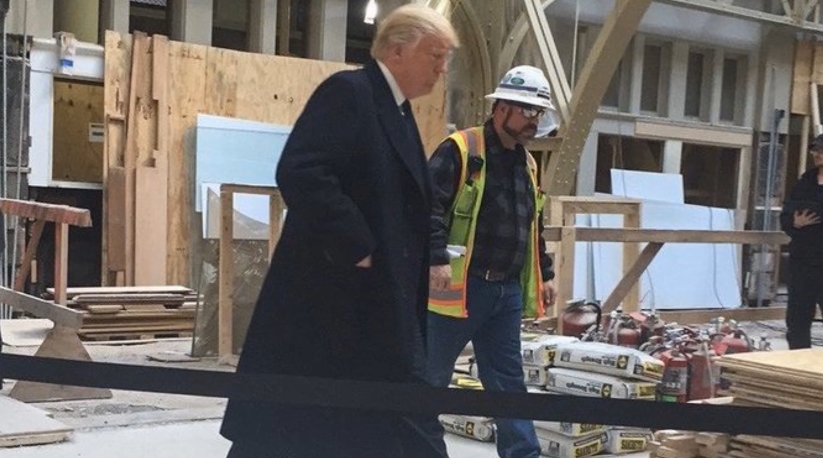
Advertisement
On the campaign trail, GOP nominee Donald J. Trump heralded his ability to “deal” and vowed to pursue pro-growth economic policies like cutting regulations and lowering U.S. corporate tax rates, the highest in the developed world.
While the president has yet to address tax cuts, which some have already predicted will be a tough row to hoe, Trump has already begun taking an ax to Obama-era rules and regulations that choked business growth, destroyed job creation and led to the biggest expansion of joblessness in the history of the country.
And already, the results are telling: Reuters reported Thursday that weekly jobless claims fell to their lowest level in almost two years:
Initial claims for state unemployment benefits declined 23,000 to a seasonally adjusted 234,000 for the week ended [sic] April 1, the Labor Department said on Thursday. The drop was the largest since the week ending April 25, 2015.
The prior week’s data was revised to show 1,000 more applications received than previously reported.
And while Reuters noted that jobless claims have been below 300,000 for 109 straight weeks, little of that can be attributed to Obama-era policies: At the same time that the “official” unemployment rate was falling under the last administration, the number of Americans leaving the workforce altogether was rising to its highest level, as CNS News reported in January. (RELATED: Team Trump Getting It Done For The Voters: Obama’s Legacy Being Steadily Dismantled)
Also, this: During Obama’s eight years in office, gross domestic product (GDP) never got above 3 percent, the worst period of growth since the Hoover administration and the weakest recovery on record. While Obama inherited an economy in freefall, his policies of heavy government regulation and control dampened growth throughout his two terms – not George W. Bush’s fault.

Trump is on course to dramatically reverse this past cycle of economic malaise, and what’s more, his approach to cutting regulations and government interference in the economy and markets is being given its due credit by experts and others who would know. Bloomberg News reports:
Michael Englund, chief economist of Action Economics in Boulder, Colo., says “It’s clear that sentiment has moved powerfully bullish” since Trump’s election. While two strong months aren’t enough to establish a clear trend, “it’s hard to argue that this would have no effect at all” on hiring. He cited rising indexes of sentiment by small businesses, producers, and consumers. For example, following Trump’s victory in November, the small-biz optimism index of the National Federation of Independent Business shot up to its highest point since 2005.
Others are reluctant to give Trump’s policies much credit – yet. And that’s to be expected; the U.S. economy is massive, and trends aren’t readily apparent in the first months after a president takes office. (RELATED: Another Promise Fulfilled: Trump Signs Executive Order Slashing Burdensome Regulations)
But the direction of employment and the rise in stock markets both signal a new economic confidence, as Englund was alluding to, that was conspicuously absent before. Remember, for several quarters during the Obama reign of economic terror, economic growth came in at about 1 percent or even worse; some quarters it was statistically zero percent.
As the Washington Free Beacon noted in July 2016, the post-Great Recession recovery was the slowest since 1949 and slower than the previous 10 economic recessionary periods.
Trump is just getting started; he hasn’t even reached his first 100 days in office. There is a lot more for him to do, but already we’re seeing positive economic signs as he begins to deliver on promises made during the campaign to boost growth and jobs.
J.D. Heyes is a senior writer for NaturalNews.com and NewsTarget.com, as well as editor of The National Sentinel.
Sources:
Submit a correction >>
This article may contain statements that reflect the opinion of the author
Advertisement
Advertisements















